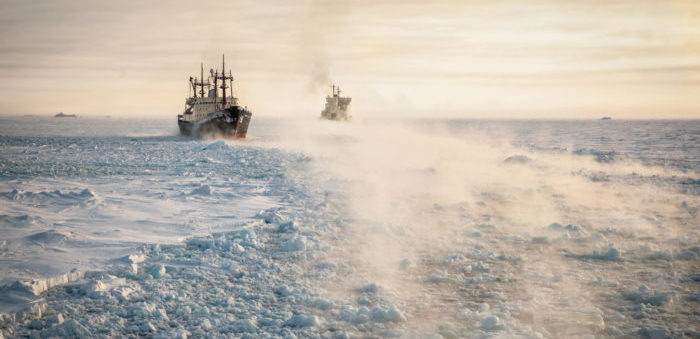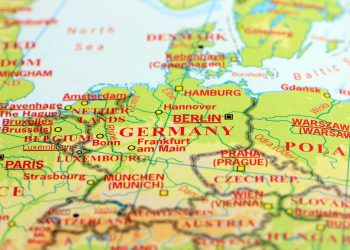It is reported that the cargo shipments passing through the Northern Sea Route (NSR) reached 30 million tonnes in 2019, achieving a major rise in fossil fuel deliveries from one of the most vulnerable environment globally.
Bellona Foundation stated that the shipping surge through the Arctic is in line with President Vladimir Putin’s order, issued in 2017, according to which “cargo volumes flowing through the Arctic reach at least 80 million tons a year by 2024.”
In addition, the previous week, President Putin inked an Arctic master plan that presents the national priorities for development in the polar region. The plan sees the beginning of drilling operations for more fossil fuels in the polar region, by offering oil and gas developers enormous tax breaks, the Barents Observer reported.
The Northern Sea Route Administration revealed that in 2019, 31.5 million tons of goods were transmitted through the passage, meaning 56.7% increase over the previous year.
[smlsubform prepend=”GET THE SAFETY4SEA IN YOUR INBOX!” showname=false emailtxt=”” emailholder=”Enter your email address” showsubmit=true submittxt=”Submit” jsthanks=false thankyou=”Thank you for subscribing to our mailing list”]
Specifically, the vast majority of the tonnage (20.5 million tons) comprised of natural gas from Novatek’s Yamal LNG project, said the Russian news agency Korabel. Next came 7.7 million tons of oil from Gazprom Neft’s Novy Port development in the Gulf of Ob. Another 1.5 million tons was accounted for by ores and minerals shipped from Norilsk Nickel’s port on the Yenisei River.
A small part of the tonnage included goods being shipped along the entire 6,000-kilometer stretch of the route, meaning the Northern Sea Route still isn’t competitive with the Suez Canal. Only 37 ships made the entire Europe to Asia voyage during the course of last year.
In the meantime, the Audit Chamber has warned that the Kremlin’s economic plans will lead to worse climate change scenarios; Referring specifically to Putin’s $400 billion National Projects plan, the Audit Chamber criticised their failure to fund any projects to mitigate its impact on the country’s economy.
Overall, ice levels in the Arctic are decreasing at an alarming pace – a decline that will only be accelerated by more maritime traffic. Therefore, except shipping companies’ announcements that they will stop shipping goods through the NSR in protection of the environment, the Swiss UBS Bank decided to stop providing its support concerning drilling in the Arctic.































































